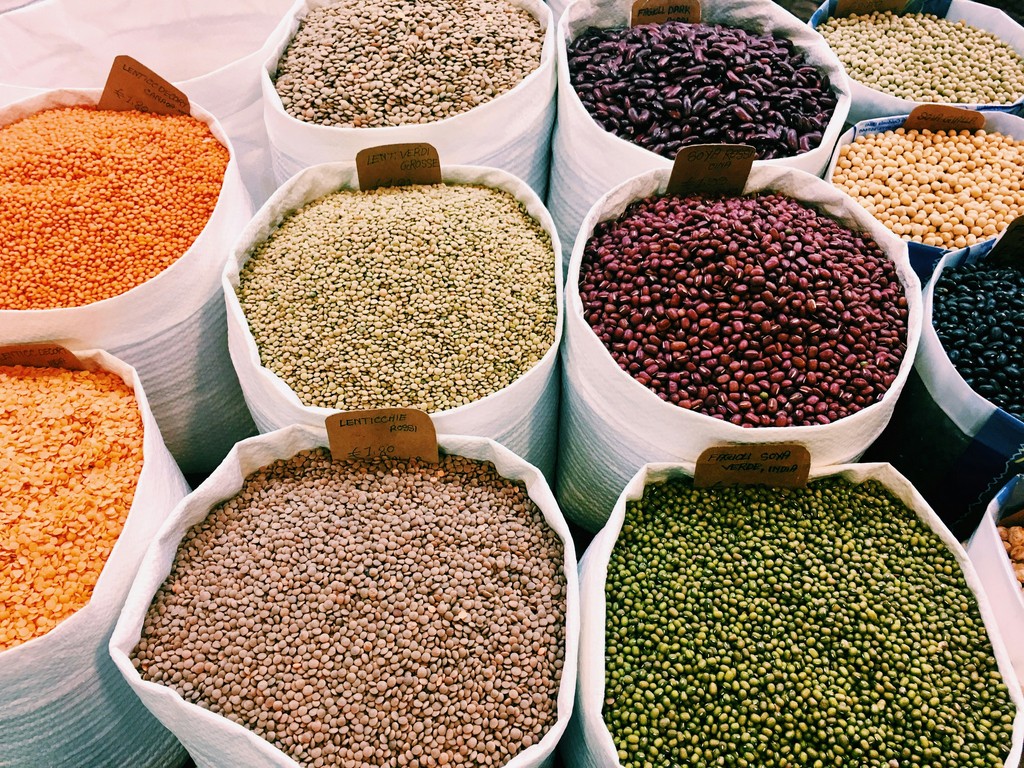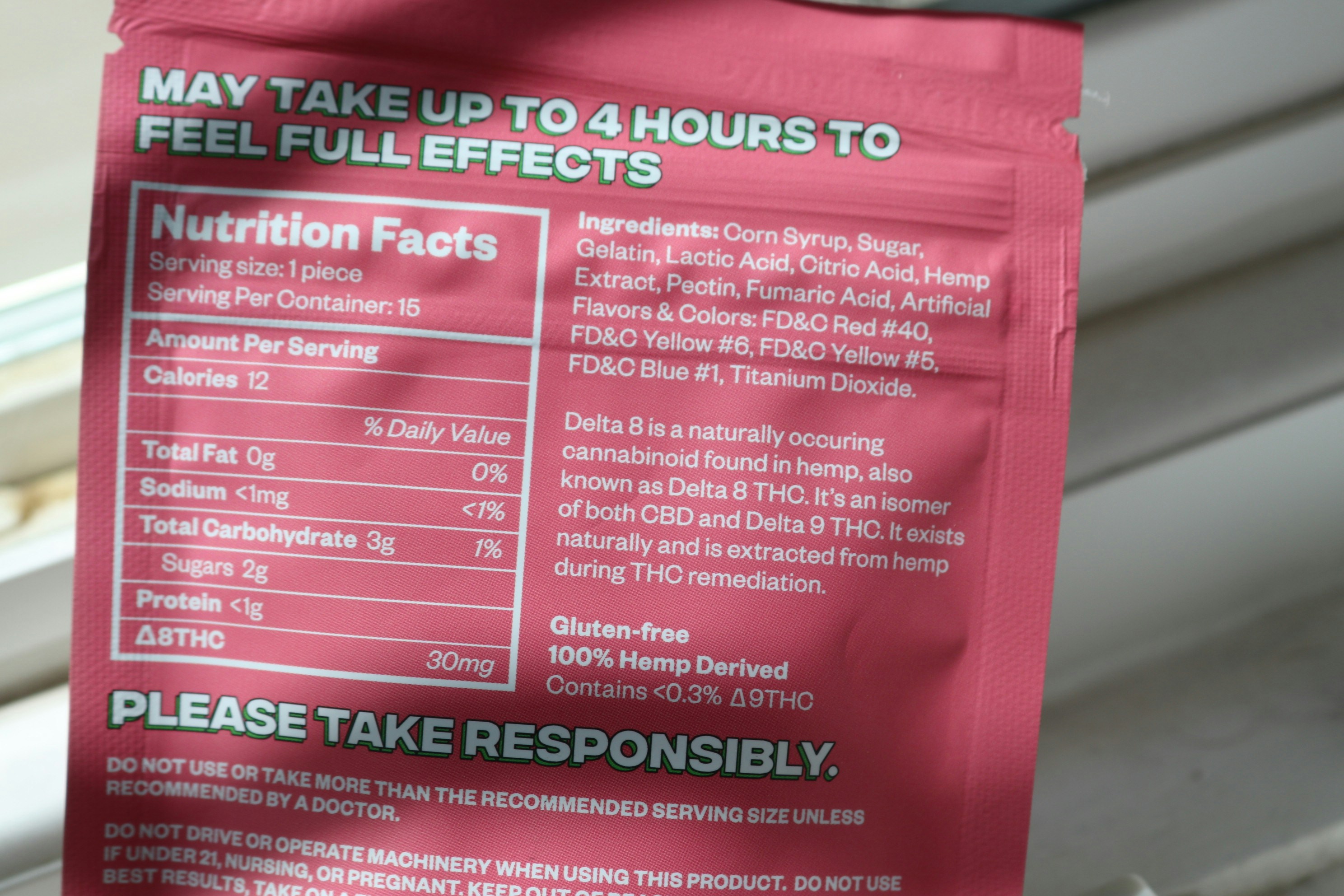


The Role of Fiber in Satiety: Staying Full and Nourished
Last updated: Feb 13, 2024
Nutrition
Fiber, often an overlooked component in our diets, plays a pivotal role in keeping us full and satisfied. Its importance extends beyond aiding digestion; it's a key factor in weight management and overall health. Let’s explore the significance of fiber in promoting satiety and how it benefits our dietary habits.
Understanding Fiber: Soluble vs. Insoluble
Fiber is a type of carbohydrate that our body cannot digest. It comes in two main forms, each with its unique health benefits. Both types of fiber play essential roles in your health.
Soluble Fiber
Soluble fiber dissolves in water and forms a gel-like substance in the digestive system. It's known for:
Lowering Blood Cholesterol: It helps reduce total and LDL cholesterol, decreasing heart disease risk.
Regulating Blood Sugar Levels: Slowing sugar absorption aids in maintaining stable blood glucose levels.
Sources: Oats, apples, oranges, pears, nuts, seeds, legumes, and barley.
Insoluble Fiber
Insoluble fiber does not dissolve in water. It’s beneficial for:
Digestive Health: It speeds up the movement of food through the digestive system, alleviating constipation.
Preventing Digestive Disorders: Regular intake can help reduce the risk of diverticulitis and hemorrhoids.
Sources: Whole wheat flour, wheat bran, nuts, beans, and vegetables like cauliflower and green beans.
Health Benefits of Fiber
Weight Management:
High-fiber foods are less energy-dense, meaning they have fewer calories for the same volume of food.
Regular consumption of fiber-rich foods can lead to lower calorie intake and aid in weight management.
Blood Sugar Control:
Fiber, particularly soluble fiber, can slow the absorption of sugar, helping to improve blood sugar levels.
This can be especially beneficial for those with diabetes or insulin resistance.
Digestive Health:
Fiber helps to normalize bowel movements and prevent constipation.
A high-fiber diet has also been linked to a reduced risk of developing various digestive conditions.
Incorporating More Fiber into Your Diet
Choose Whole Grains Over Refined: Opt for whole-grain bread, pasta, and cereals instead of their refined counterparts.
Increase Fruit and Vegetable Intake: Add fruits and vegetables to every meal. Snack on raw veggies or fruits during the day.
Include Legumes in Your Meals: Beans, lentils, and peas are excellent sources of fiber and can be included in salads, soups, and stews.
Snack on Nuts and Seeds: Nuts and seeds are not only high in fiber but also in healthy fats and protein.
Read Food Labels: Choose foods with high dietary fiber content when shopping for groceries.
Stay Hydrated: Increase fiber gradually and drink plenty of water.
Fiber Supplements
Sometimes, meeting your daily fiber needs through diet alone can be challenging. Here are some scientifically proven fiber supplements. Supplements should complement, not replace, dietary fiber from food sources.
Psyllium Husk:
Best for: Bowel regularity, heart health, and blood sugar control.
Why: It’s effective at treating constipation due to its ability to absorb water and form a gel, which helps stool pass more easily. Psyllium is also well-studied for its role in lowering LDL (bad) cholesterol and helping to manage blood sugar levels.
Usage: Mix with water or add to smoothies.
Acacia Fiber:
Best for: Sensitive digestive systems and weight management.
Why: It tends to be gentler on the digestive system and less likely to cause bloating. Acacia fiber can also help with weight management by promoting a feeling of fullness.
Usage: In dietary supplements and food products.
Wheat Dextrin:
Best for: General digestive health.
Why: It’s a soluble fiber that can help with bowel regularity. Wheat dextrin can also have a moderate effect on lowering cholesterol and blood sugar levels.
Usage: Over-the-counter supplements.
Methylcellulose:
Best for: Constipation relief.
Why: As a non-fermentable fiber, it’s less likely to cause bloating and gas compared to other fiber supplements. Methylcellulose absorbs water in the intestine, aiding in stool softening.
Usage: Available as an over-the-counter supplement.
Guar Gum:
Best for: Lowering cholesterol and managing blood sugar levels.
Why: Guar gum is effective in reducing LDL cholesterol and can help regulate blood sugar levels, which is beneficial for individuals with diabetes.
Usage: As a food additive and dietary supplement.
Conclusion
The incorporation of fiber into your diet is a simple yet effective way to enhance satiety and maintain a healthy weight. By understanding the types of fiber and their roles in promoting fullness, along with incorporating fiber-rich foods into your daily meals, you can enjoy the numerous health benefits that fiber offers. Remember, increasing fiber intake should be gradual and accompanied by plenty of water to aid in its digestive process.
Fiber, often an overlooked component in our diets, plays a pivotal role in keeping us full and satisfied. Its importance extends beyond aiding digestion; it's a key factor in weight management and overall health. Let’s explore the significance of fiber in promoting satiety and how it benefits our dietary habits.
Understanding Fiber: Soluble vs. Insoluble
Fiber is a type of carbohydrate that our body cannot digest. It comes in two main forms, each with its unique health benefits. Both types of fiber play essential roles in your health.
Soluble Fiber
Soluble fiber dissolves in water and forms a gel-like substance in the digestive system. It's known for:
Lowering Blood Cholesterol: It helps reduce total and LDL cholesterol, decreasing heart disease risk.
Regulating Blood Sugar Levels: Slowing sugar absorption aids in maintaining stable blood glucose levels.
Sources: Oats, apples, oranges, pears, nuts, seeds, legumes, and barley.
Insoluble Fiber
Insoluble fiber does not dissolve in water. It’s beneficial for:
Digestive Health: It speeds up the movement of food through the digestive system, alleviating constipation.
Preventing Digestive Disorders: Regular intake can help reduce the risk of diverticulitis and hemorrhoids.
Sources: Whole wheat flour, wheat bran, nuts, beans, and vegetables like cauliflower and green beans.
Health Benefits of Fiber
Weight Management:
High-fiber foods are less energy-dense, meaning they have fewer calories for the same volume of food.
Regular consumption of fiber-rich foods can lead to lower calorie intake and aid in weight management.
Blood Sugar Control:
Fiber, particularly soluble fiber, can slow the absorption of sugar, helping to improve blood sugar levels.
This can be especially beneficial for those with diabetes or insulin resistance.
Digestive Health:
Fiber helps to normalize bowel movements and prevent constipation.
A high-fiber diet has also been linked to a reduced risk of developing various digestive conditions.
Incorporating More Fiber into Your Diet
Choose Whole Grains Over Refined: Opt for whole-grain bread, pasta, and cereals instead of their refined counterparts.
Increase Fruit and Vegetable Intake: Add fruits and vegetables to every meal. Snack on raw veggies or fruits during the day.
Include Legumes in Your Meals: Beans, lentils, and peas are excellent sources of fiber and can be included in salads, soups, and stews.
Snack on Nuts and Seeds: Nuts and seeds are not only high in fiber but also in healthy fats and protein.
Read Food Labels: Choose foods with high dietary fiber content when shopping for groceries.
Stay Hydrated: Increase fiber gradually and drink plenty of water.
Fiber Supplements
Sometimes, meeting your daily fiber needs through diet alone can be challenging. Here are some scientifically proven fiber supplements. Supplements should complement, not replace, dietary fiber from food sources.
Psyllium Husk:
Best for: Bowel regularity, heart health, and blood sugar control.
Why: It’s effective at treating constipation due to its ability to absorb water and form a gel, which helps stool pass more easily. Psyllium is also well-studied for its role in lowering LDL (bad) cholesterol and helping to manage blood sugar levels.
Usage: Mix with water or add to smoothies.
Acacia Fiber:
Best for: Sensitive digestive systems and weight management.
Why: It tends to be gentler on the digestive system and less likely to cause bloating. Acacia fiber can also help with weight management by promoting a feeling of fullness.
Usage: In dietary supplements and food products.
Wheat Dextrin:
Best for: General digestive health.
Why: It’s a soluble fiber that can help with bowel regularity. Wheat dextrin can also have a moderate effect on lowering cholesterol and blood sugar levels.
Usage: Over-the-counter supplements.
Methylcellulose:
Best for: Constipation relief.
Why: As a non-fermentable fiber, it’s less likely to cause bloating and gas compared to other fiber supplements. Methylcellulose absorbs water in the intestine, aiding in stool softening.
Usage: Available as an over-the-counter supplement.
Guar Gum:
Best for: Lowering cholesterol and managing blood sugar levels.
Why: Guar gum is effective in reducing LDL cholesterol and can help regulate blood sugar levels, which is beneficial for individuals with diabetes.
Usage: As a food additive and dietary supplement.
Conclusion
The incorporation of fiber into your diet is a simple yet effective way to enhance satiety and maintain a healthy weight. By understanding the types of fiber and their roles in promoting fullness, along with incorporating fiber-rich foods into your daily meals, you can enjoy the numerous health benefits that fiber offers. Remember, increasing fiber intake should be gradual and accompanied by plenty of water to aid in its digestive process.
Fiber, often an overlooked component in our diets, plays a pivotal role in keeping us full and satisfied. Its importance extends beyond aiding digestion; it's a key factor in weight management and overall health. Let’s explore the significance of fiber in promoting satiety and how it benefits our dietary habits.
Understanding Fiber: Soluble vs. Insoluble
Fiber is a type of carbohydrate that our body cannot digest. It comes in two main forms, each with its unique health benefits. Both types of fiber play essential roles in your health.
Soluble Fiber
Soluble fiber dissolves in water and forms a gel-like substance in the digestive system. It's known for:
Lowering Blood Cholesterol: It helps reduce total and LDL cholesterol, decreasing heart disease risk.
Regulating Blood Sugar Levels: Slowing sugar absorption aids in maintaining stable blood glucose levels.
Sources: Oats, apples, oranges, pears, nuts, seeds, legumes, and barley.
Insoluble Fiber
Insoluble fiber does not dissolve in water. It’s beneficial for:
Digestive Health: It speeds up the movement of food through the digestive system, alleviating constipation.
Preventing Digestive Disorders: Regular intake can help reduce the risk of diverticulitis and hemorrhoids.
Sources: Whole wheat flour, wheat bran, nuts, beans, and vegetables like cauliflower and green beans.
Health Benefits of Fiber
Weight Management:
High-fiber foods are less energy-dense, meaning they have fewer calories for the same volume of food.
Regular consumption of fiber-rich foods can lead to lower calorie intake and aid in weight management.
Blood Sugar Control:
Fiber, particularly soluble fiber, can slow the absorption of sugar, helping to improve blood sugar levels.
This can be especially beneficial for those with diabetes or insulin resistance.
Digestive Health:
Fiber helps to normalize bowel movements and prevent constipation.
A high-fiber diet has also been linked to a reduced risk of developing various digestive conditions.
Incorporating More Fiber into Your Diet
Choose Whole Grains Over Refined: Opt for whole-grain bread, pasta, and cereals instead of their refined counterparts.
Increase Fruit and Vegetable Intake: Add fruits and vegetables to every meal. Snack on raw veggies or fruits during the day.
Include Legumes in Your Meals: Beans, lentils, and peas are excellent sources of fiber and can be included in salads, soups, and stews.
Snack on Nuts and Seeds: Nuts and seeds are not only high in fiber but also in healthy fats and protein.
Read Food Labels: Choose foods with high dietary fiber content when shopping for groceries.
Stay Hydrated: Increase fiber gradually and drink plenty of water.
Fiber Supplements
Sometimes, meeting your daily fiber needs through diet alone can be challenging. Here are some scientifically proven fiber supplements. Supplements should complement, not replace, dietary fiber from food sources.
Psyllium Husk:
Best for: Bowel regularity, heart health, and blood sugar control.
Why: It’s effective at treating constipation due to its ability to absorb water and form a gel, which helps stool pass more easily. Psyllium is also well-studied for its role in lowering LDL (bad) cholesterol and helping to manage blood sugar levels.
Usage: Mix with water or add to smoothies.
Acacia Fiber:
Best for: Sensitive digestive systems and weight management.
Why: It tends to be gentler on the digestive system and less likely to cause bloating. Acacia fiber can also help with weight management by promoting a feeling of fullness.
Usage: In dietary supplements and food products.
Wheat Dextrin:
Best for: General digestive health.
Why: It’s a soluble fiber that can help with bowel regularity. Wheat dextrin can also have a moderate effect on lowering cholesterol and blood sugar levels.
Usage: Over-the-counter supplements.
Methylcellulose:
Best for: Constipation relief.
Why: As a non-fermentable fiber, it’s less likely to cause bloating and gas compared to other fiber supplements. Methylcellulose absorbs water in the intestine, aiding in stool softening.
Usage: Available as an over-the-counter supplement.
Guar Gum:
Best for: Lowering cholesterol and managing blood sugar levels.
Why: Guar gum is effective in reducing LDL cholesterol and can help regulate blood sugar levels, which is beneficial for individuals with diabetes.
Usage: As a food additive and dietary supplement.
Conclusion
The incorporation of fiber into your diet is a simple yet effective way to enhance satiety and maintain a healthy weight. By understanding the types of fiber and their roles in promoting fullness, along with incorporating fiber-rich foods into your daily meals, you can enjoy the numerous health benefits that fiber offers. Remember, increasing fiber intake should be gradual and accompanied by plenty of water to aid in its digestive process.
Stay informed
Sign up for our newsletter to receive wellness content and updates related to Amelia.
Sign up for our newsletter to receive wellness content and updates related to Amelia.
More content



The Power of Protein



Making Sense of Nutrition Labels



Healthy Snacking Options: Ideas for Nutritious and Satisfying Snacks.



Understanding the Impact of Your Menstrual Cycle on Strength Performance



How Menstrual Cycle Impacts on Your Overall Wellness



Your Essential Health and Fitness Guide: Cutting Through the Noise